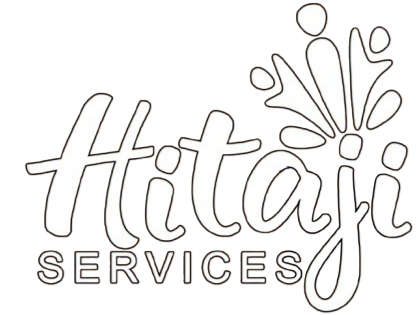Early Childhood Support Extended: What Parents Need to Know About the Age 9 Update
Published: July 29, 2025 | By Hitaji Services Team
Families across Australia have reason to celebrate with one of the most significant positive changes to the NDIS in recent years. The extension of the early childhood approach from age 7 to age 9 represents a crucial recognition of how children with disabilities develop and the extended support they need during these formative years.
As a family-centered disability support provider, Hitaji Services has witnessed firsthand the transformative impact of early intervention. This extension provides families with two additional years of specialized support during a critical period of child development.
Understanding the Early Childhood Approach Extension
The NDIS early childhood approach has always been different from standard NDIS support. It's designed specifically around how young children learn, grow, and develop, with a focus on building capacity within the child, family, and support network.
What Makes Early Childhood Support Special:
Developmental Focus: Services are designed around typical childhood development milestones rather than deficit-based models.
Family-Centered Approach: Support extends to parents, siblings, and caregivers, recognizing that the whole family plays a role in a child's development.
Natural Environment Learning: Emphasis on building skills in everyday settings like home, childcare, and community spaces.
Flexible Service Delivery: Support can be provided in various formats including individual therapy, group programs, and family consultation.
Why Ages 7-9 Are Critical Years
The decision to extend early childhood support to age 9 wasn't arbitrary – it's based on developmental science and real-world evidence about when children benefit most from intensive, family-centered intervention.
Key Developmental Milestones at Ages 7-9:
Academic Foundation Building: Children are establishing fundamental literacy and numeracy skills
Social Skill Development: Peer relationships become increasingly important and complex
Independence Skills: Self-care and daily living skills are rapidly developing
Communication Maturity: Language skills become more sophisticated and nuanced
Emotional Regulation: Children are learning to manage emotions and behaviors independently
For children with disabilities, these years often require continued intensive support to ensure they can successfully transition into more independent learning and social environments.
What This Extension Means for Your Family
If your child is currently receiving early childhood supports and approaching age 7, or if your child is between 7-9 years old, this extension offers significant benefits:
Continued Specialized Support: No abrupt transition to adult-style NDIS services at age 7 – your child can continue receiving developmentally appropriate support.
Family Support Continuation: Parents and caregivers continue receiving training, resources, and support to help their child thrive.
Consistent Service Providers: Relationships with trusted support providers like Hitaji Services can continue without disruption.
Flexible Goal Setting: Continued focus on capacity building rather than maintenance-focused support.
How Hitaji Services Supports Early Childhood Development
At Hitaji Services, our family-centered approach has always aligned with the principles of early childhood intervention. The extension to age 9 allows us to continue providing the specialized support that makes a real difference during these crucial years.
Our Early Childhood Support Includes:
In-Home Family Support: Working with your family in your natural environment to build skills and confidence for both children and parents.
Community Integration: Helping children participate in community activities, sports, playgroups, and social opportunities that build independence and social skills.
School Transition Support: Specialized assistance to help children navigate the increasing academic and social demands of primary school years.
Sibling and Family Support: Recognition that disability affects the whole family, with support and resources for siblings and caregivers.
Coordinated Care: Working closely with schools, therapists, and other professionals to ensure consistent approaches across all environments.
Maximizing the Extended Support Period
To make the most of the extended early childhood approach, families should focus on several key areas:
1. Set Long-Term Development Goals With support now extending to age 9, families can set more ambitious, long-term goals for their child's development. Work with your Hitaji support team to identify skills and milestones you want to achieve over the next 2-4 years.
2. Build Family Capacity Use this extended period to strengthen your family's ability to support your child's ongoing development. This includes learning new strategies, building confidence, and connecting with community resources.
3. Focus on School Success Ages 7-9 are crucial school years. Collaborate with your Hitaji team and school to ensure your child has the support needed for academic and social success.
4. Develop Independence Skills These years are ideal for building self-care, communication, and social skills that will serve your child throughout their life.
Planning for the Future
While the extension to age 9 provides valuable additional support time, it's also important to begin planning for your child's transition to adult NDIS services. This transition doesn't need to be abrupt or stressful when properly planned.
Hitaji Services Transition Support:
Gradual Transition Planning: Beginning around age 8, we start discussing and planning for the transition to adult services
Skill Building Focus: Emphasizing independence skills that will serve your child well in adult support models
Family Preparation: Helping families understand and prepare for adult NDIS planning and services
Provider Continuity: Where possible, maintaining relationships with trusted support workers through the transition
The Bigger Picture: Investing in Long-Term Outcomes
The extension of early childhood support to age 9 represents a significant investment in better long-term outcomes for children with disabilities. Research consistently shows that quality early intervention leads to:
Better educational outcomes
Increased independence in adulthood
Stronger social relationships and community connections
Reduced need for intensive supports later in life
Better mental health and wellbeing
By extending this critical support period, the NDIS is recognizing that the investment in early childhood pays dividends throughout a person's entire life.
Taking Action: Next Steps for Your Family
If your child is currently receiving early childhood supports or you believe they might benefit from this extended approach, now is the time to take action:
1. Review Your Current Plan: Ensure your child's NDIS plan reflects the extended early childhood approach if they're under age 9.
2. Connect with Specialists: Work with providers like Hitaji Services who understand the unique requirements of early childhood support.
3. Set New Goals: Take advantage of the extended support period to set ambitious, long-term development goals.
4. Build Your Support Network: Connect with other families and community resources that can support your child's development.
Ready to explore how the extended early childhood approach can benefit your family? Contact Hitaji Services today for a consultation about your child's needs and how our family-centered support can help them thrive during these crucial developmental years.
Our experienced team understands the unique opportunities and challenges of supporting children of all ages, and we're here to help your family make the most of this extended support period.

